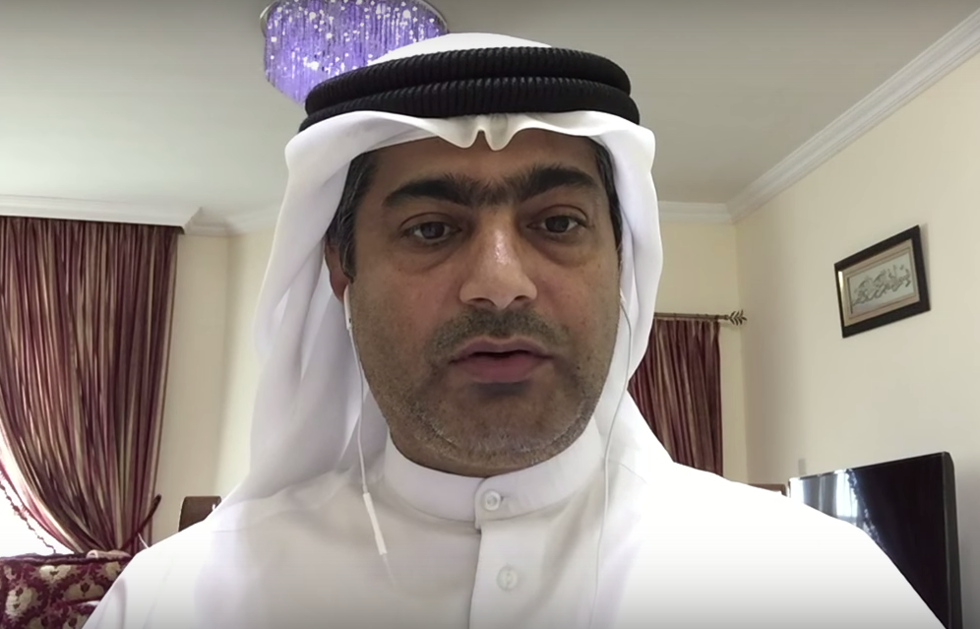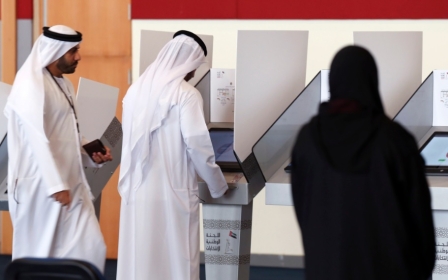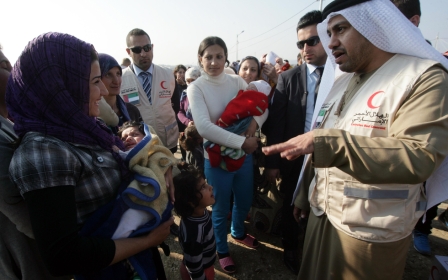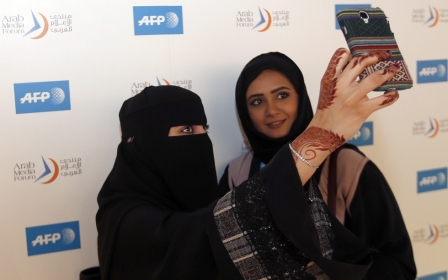Emirati activist wins 'Nobel prize for human rights'

An Emirati human rights activist barred from leaving his home country was on Tuesday named the 2015 winner of an award often dubbed the Nobel prize for human rights.
Ahmed Mansoor has since 2006 campaigned for freedom of expression and greater political and civil rights in the United Arab Emirates, and successfully pushed for the liberation of two bloggers jailed for highlighting social problems in the country.
On Tuesday, he was awarded the Martin Ennals award, named after the former secretary general of Amnesty International. The prize is given to human rights defenders who show deep commitment to their cause despite huge personal risk.
"Ahmed Mansoor is one of the few voices within the United Arab Emirates who provides a credible independent assessment of human rights developments in the country," the Martin Ennals Foundation said on its website.
"I hope that my presence as a finalist can show people that we have deep human rights issues that PR companies and a complex network of interests try to dismiss, or at least present as contrary to the reality," Mansoor said in a video message filmed for the award ceremony.
Mansoor was sentenced to three years in prison in 2011 in a trial criticised by rights groups as "grossly unfair". At the time, he stood accused, along with four others, of using the Internet to insult the UAE's leaders, of calling for a boycott of elections and of being linked to anti-government demonstrations.
He was pardoned by the UAE's president later the same year, but was stripped of his passport and barred from overseas travel.
The Martin Ennals award was created in 1993, two years after Ennals died.
Its jury is composed of Amnesty International, Human Rights Watch, the International Commission of Jurists and seven other international campaign organisations.
The winner receives a prize of 20,000 Swiss francs (18,350 euros, $20,700).
The debut recipient in 1994 was Chinese rights activist and former political prisoner Harry Wu, who moved to the United States in the mid-1980s.
The award can also go to a group.
Middle East Eye propose une couverture et une analyse indépendantes et incomparables du Moyen-Orient, de l’Afrique du Nord et d’autres régions du monde. Pour en savoir plus sur la reprise de ce contenu et les frais qui s’appliquent, veuillez remplir ce formulaire [en anglais]. Pour en savoir plus sur MEE, cliquez ici [en anglais].




